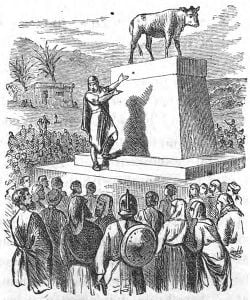The secret to instant wealth is to spot a mass delusion and bet against it. The Tulip Craze. Florida swamp land.
Getting the timing right is tricky, but we are blessed with an overload of mass delusions. You can pick your own favorite. Delusional bubbles have to pop at some point, because the people who are paying for them eventually figure out that they’ve been had.








